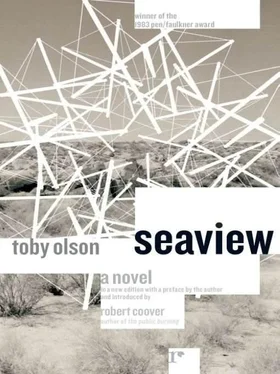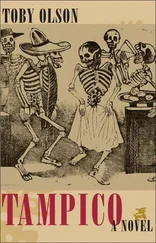The Chair was one of the first to arrive. He parked beyond the clubhouse, a little up and across the road from it. He did not miss the Chief standing there as he passed, and he was already slightly pissed as he sat on the seat of his car, his legs out the open door, and put his golf shoes on. He got his clubs out of the trunk, left them leaning against the split-rail fence that led up to the first tee, crossed the road, stared in the eye of the Chief as he passed him, and entered the clubhouse. John Hope had arrived before him, and the Chair nodded to John and rolled his eyes a little, giving one of his head gestures toward the door behind him. John nodded in understanding and smiled.
Across the road from the clubhouse, to the right of the path leading to the first tee, Chip was putting the finishing touches on the putting green. He wanted to make sure that the apron was in good shape; a lot of men used it, standing a few yards behind it, practicing their chips on tournament days. While he was digging in his bag for his implements — his small clippers, wide-toothed comb, his bug spray — he glanced up and saw the Chief standing by the door. The Chief was looking his way, and Chip looked at him and smiled and mouthed the words “Hi, Chiefie!” in an exaggerated manner, and the Chief read them and smiled back. Chip started on the high side of the green, the place where there was the most room for the men to chip from, and began to work one side to the other, kneeling and combing the grass upward and clipping the uneven ends off. When he found ladybugs he put them on his shoulder, singing “Ladybug, Ladybug,” but most of the other bugs he found got a brief shot of the spray. When he had finished with a section of fringe, combing and clipping it, he would watch as it slowly lowered itself, and when it did not lower fast enough for him, he would stand up and make his shadow fall over it. This took away the light energy of the sun and would cause it to bend over quicker. He worked carefully and methodically and with considerable skill. He was just high enough so that his attention was clear and focused; the overly intense perception time was gone, and he liked best to be this way. The Chief liked to watch the way he worked.
Back in the clubhouse, Sammy was finishing up with ordering the gear in his small pro shop. He straightened the stacks of shirts, and he pointed the brims of the hats forward in their nestled piles. The Chair was out in the small attached garage talking animatedly with John Hope. He’s bugged by the Chief again, Sammy thought, and he laughed to himself as he looked down at his shoes. He had picked new ones out for the Chair’s benefit. They were garish, two-toned orange-and-brown, and he had worn peds instead of socks so that it looked like he was barefoot in the golf shoes. He had ragged the ends of his cutoffs a little, and a couple of strings of white fabric hung from them. He had put his gold chain with his save the whales emblem on it around his neck. His Save the Whales bumperstickers on the glass counter was another thing that bugged the Chair. His fedora, with the new white feather in its band, was ready under the counter. He thought he would save that, a final touch, just before the tournament began.
By eleven-forty-five a good number of men had rolled in. There were at least twenty of them, some standing in the clubhouse talking, others out front messing with their bags and clubs, a few across the road chipping and putting. Some laughter came from the putting green. Chip’s high-pitched giggle could be heard. He hadn’t quite finished in time, and the balls were bouncing around him, some hitting his legs, him grabbing some of them in flight or on a first bounce as he worked on the last patch of fringe. At twelve o’clock the Chair stuck his head out the door and yelled with a kind of impatient urgency.
“Sign-up time, sign-up time!”
A couple of men walked into the clubhouse. Most of the others stopped what they were doing and looked at him. A few laughed and poked each other. The Chair let the screen door slam and went to the table where John Hope was already sitting. John had the sign-up sheet ready with a few dollar bills for change beside it. The Chair took the three-by-five handicap cards out of the green-metal file box and put them on the table. He sat down beside John and began shuffling through the cards. The Chair had selected this part of the sign-up job for himself because it afforded him banter with the men. The cards listed their names and their handicaps. Every week, once the tournaments got going, Chair would spend an evening in the clubhouse going through the cards, adjusting the handicaps up or down as they were influenced by the scores the men had posted during the week. Since this was the first official tournament, the handicaps on the cards reflected the skill of the men at the end of the previous season. As they came into the clubhouse and signed up, paying their four dollars for the pot, many of them looked down at their cards when the Chair extracted them from the pile, checking to see how many strokes they had. This pausing and checking made the sign-up take a little longer, but the Chair didn’t mind that. He spoke to most of the men, joking and complimenting.
“Cooky, you sandbagger, a seventeen! Tom, a twelve, good play last year; hope you stayed sharp over the winter. Crow, you devil, a twenty-four?! You still hit ’em good for a fat man! A.J., good God, eleven!; you tough old cocker!”
As the Chair was carrying on, some of the men looked at each other and rolled their eyes. Sammy grinned behind his glass counter, selling balls, gloves, and tees. Then the door opened, and Commander Fred Wall entered the clubhouse.
As commanding officer of the Seaview Air Force Station, Wall was part of the matrix of troubling circumstances that touched on play at Seaview. In the first place, and probably most important to Chair, Sammy, and the other local members, Wall was a real sandbagger. A year ago, Wall knew that this was to be his last year as commander of the Air Force Station. He was going to be transferred, a promotion, to a post in San Diego, and he had vowed that before he left he would get the trophy that went to the winner of the First Flight at the end of the summer.
From the beginning, Wall’s experience in the club championship had pissed him off. He could not win it. Each year he would spend most of the winter sharpening his game, getting it honed to what he thought was its finest edge, and then one of these damn fishermen, or storeowners, or country schoolteachers would come up with some crazy, incredible round. They didn’t even know how to hit a ball properly. They would hold their clubs like baseball bats. They would putt like women. They would pitch and run where they should use a wedge. They would blast out of sand traps like they were digging graves. But they would score, and they would beat him soundly. He had been assigned to Seaview as a trouble-shooter, and he had shot down the trouble. When he had arrived as commanding officer, the men had been fraternizing with the townspeople to an inordinate extent. They had used the N.C.O. club and the P.X. buying beer and cigarettes at military prices. He had even found that some of the local women were living with Air Force men, in common-law arrangements, on the base. Extra duty, frequent inspection, two field days a week, and curtailment of passes and liberty had put a stop to all this. Now the men were sharp, they respected him, the place was in order. He was forty-three years old, he had pulled an entire (if small) command into shape, he was being promoted because of the excellence of his work, but he could not beat a bunch of hick civilians in a local golf tournament.
It enraged him, and when he got wind of his transfer, he vowed that he would not leave Seaview without a trophy.
Читать дальше












